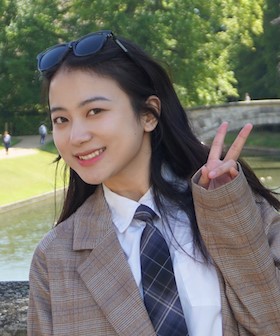Zhongling Huang, zh355@cam.ac.uk
China
Engineering, St Catharine's College
PhD thesis: Handsfree gesture and vision control for remote operation of a drone using 3D computer-generated
holography.
Research interests:
1. Holographic 3D display.
2. Human-machine interaction.
3. Augmented reality.
4. Autopilot.
My research incorporates two exciting topics today: holographic 3D display and human-machine interaction. It will use a state-of-the-art quadcopter drone and lidar system to map a 3D environment and display the 3D scene in real time to a human operator. By using eye tracking and gesture recognition technology, the operator will be able to use vision and gestures to pilot the drone, achieving full non-contact control. In addition, it is expected to augment the 3D scene with additional information, such as temperature and coordinates. This data will be displayed in an immersive way, without limiting natural vision.
Another research focus is to construct a persistent model of an environment and use that for the drone to autopilot between destinations. A manual override will be included in case of an emergency.
Who or what inspired you to pursue your research interests?
I have always aspired to live a more convenient and intelligent life, like the one depicted in science fiction, with 3D video calls, 3D demonstrations and 3D everything. From my master’s study at Cambridge University, I realised that such a life is not a fantasy but can actually be fulfilled through holography. Although there are 3D products nowadays, some require headsets or glasses and some are too expensive or immature to be widely available. Therefore, I believe it is meaningful to develop holographic technology so that it will transform people’s lives in the future. This has sparked my research interests.

